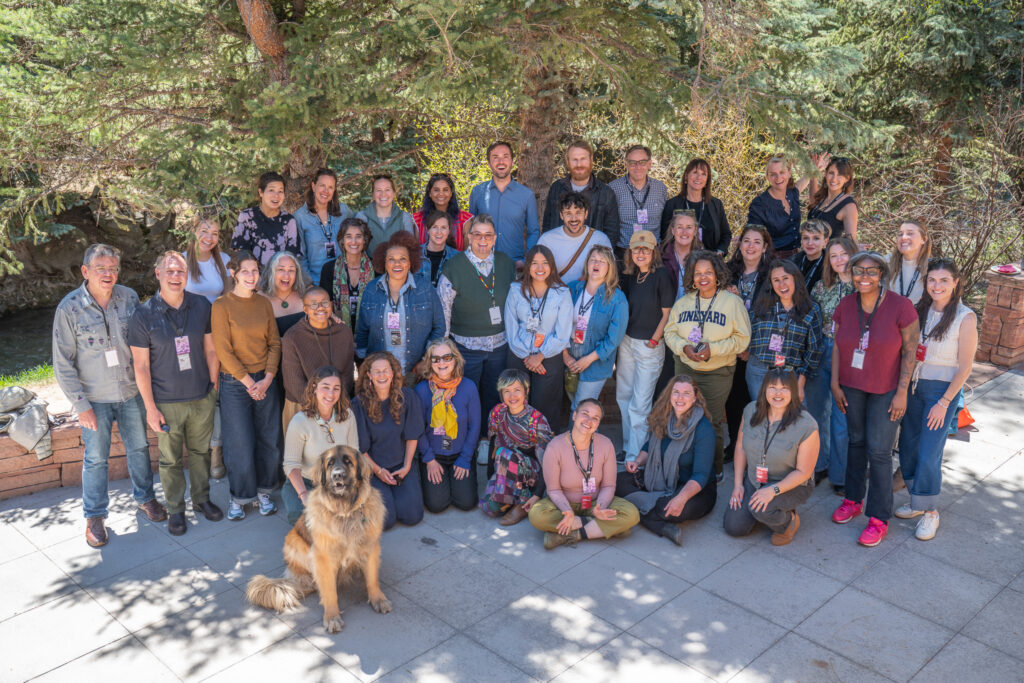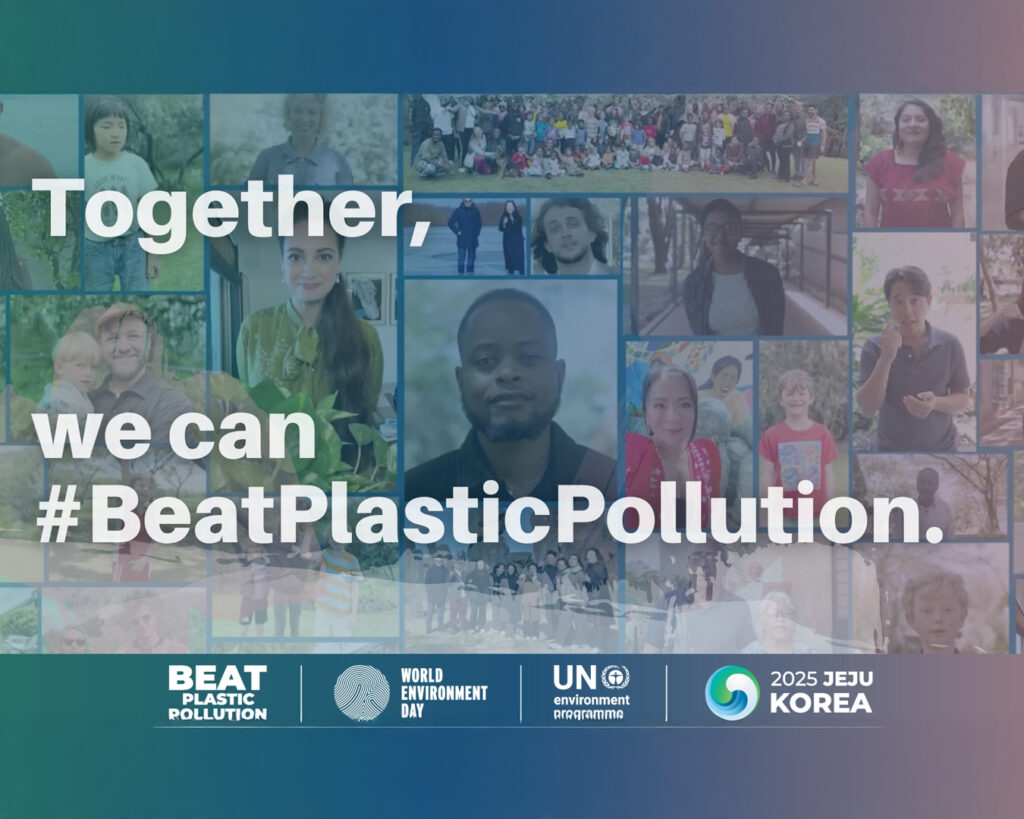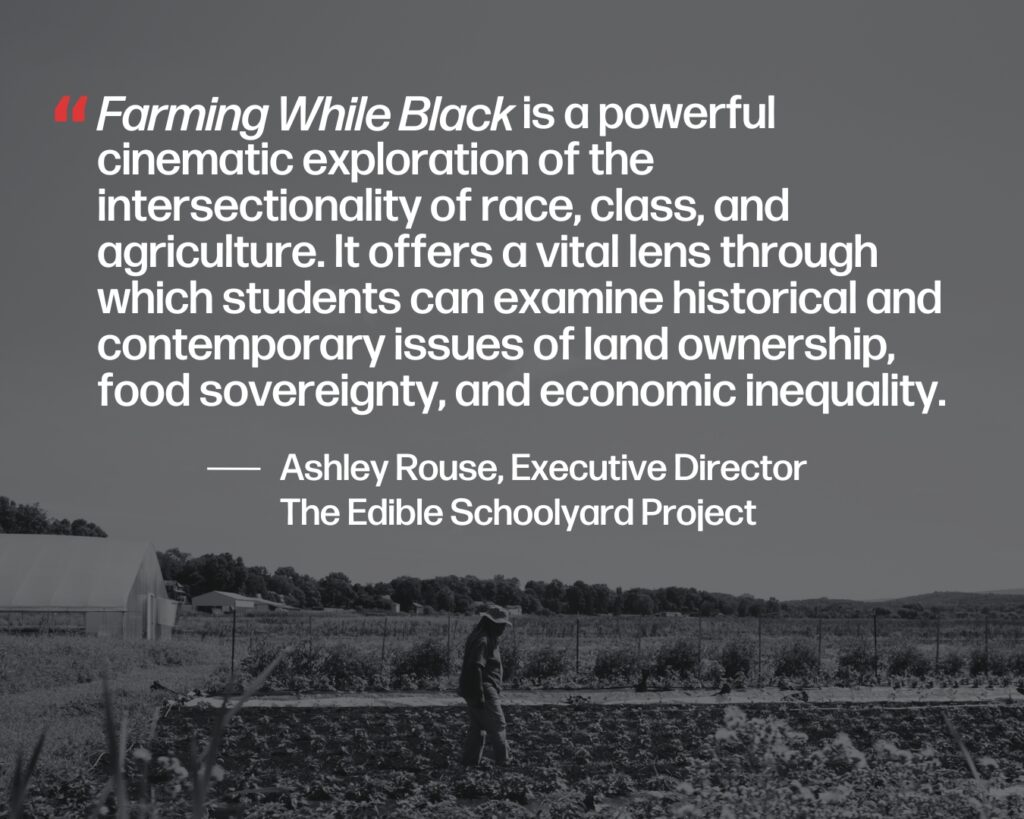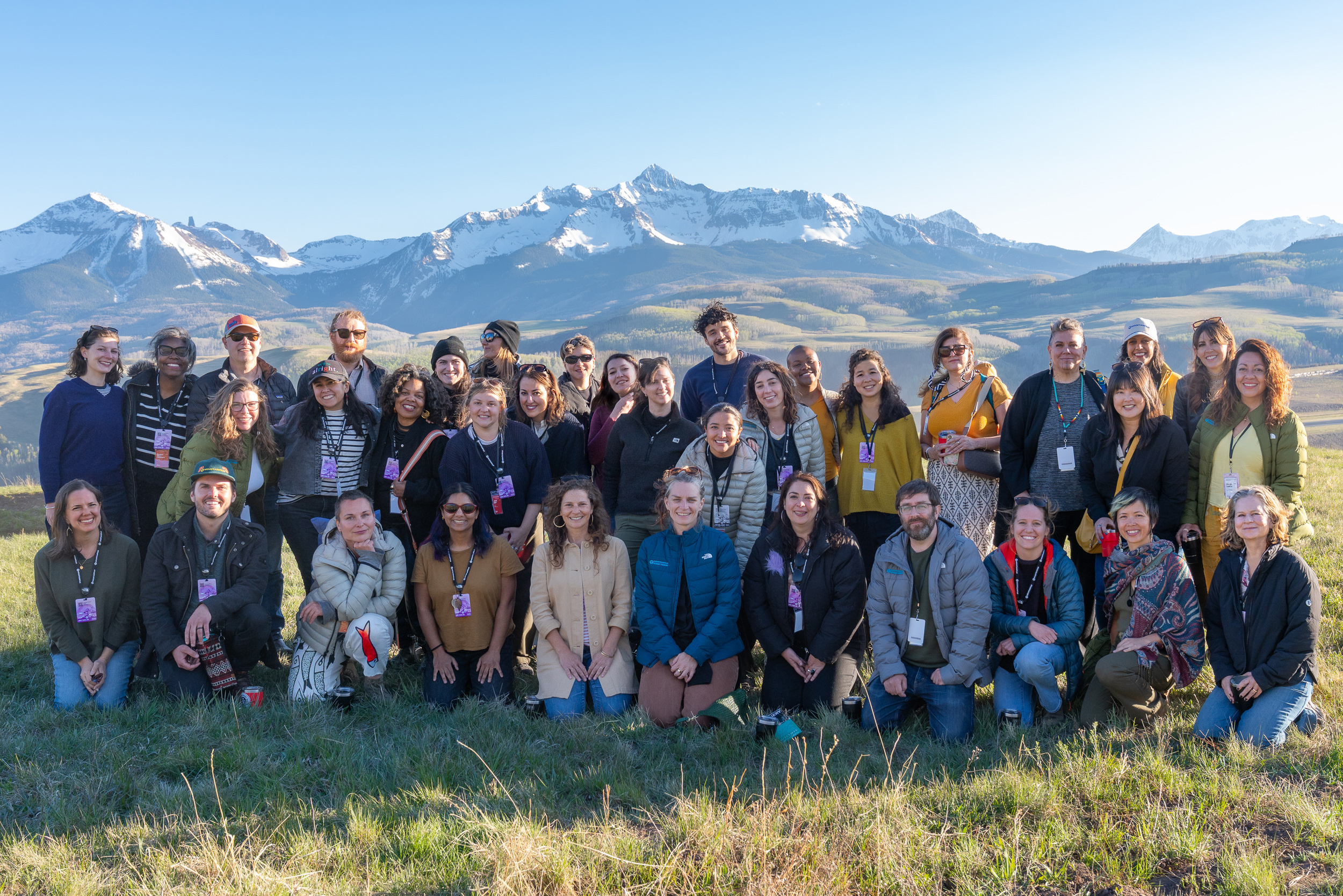2025 Filmmaker Summit
Surrounded by Telluride’s iconic peaks and rushing streams, The Redford Center convened our grantee cohort of independent filmmakers for a powerful 2-day summit. Together, they explored how film can serve as a lever for environmental progress — documenting change, while driving it. As one filmmaker put it, “This is the work of my life.”
In an era of narrative upheaval, where stories shape reality, our filmmakers shared strategies for reclaiming the narrative through long-arc storytelling that connects climate to every aspect of life. These conversations revealed a shared truth: no story is too small, and no solution stands alone.
Our powerhouse keynote speaker, Tamara Toles O’Laughlin, president and CEO of Environmental Grantmakers Association, reminded filmmakers that art and storytelling are absolutely essential to progress because film still has the power to cut through, to connect, to show people what’s real.
During a festival panel titled “What’s Really Working in Sustainability?” our Executive Director Jill Tidman challenged us to rethink sustainability by boldly building a regenerative future. She emphasized the power of storytelling to connect climate action with everyday human experiences, the importance of including Indigenous wisdom, and the need to shift from scarcity to possibility. Her call was clear: to create real change, we must invite everyone in, fund creative voices, and imagine a world worth fighting for.
The Summit took place alongside Telluride’s Mountainfilm Festival (May 22–26), where hundreds of filmmakers gathered to share stories shaping our collective future.
At the festival, we were tremendously proud to have three The Redford Center supported films — Between Moon Tides, Enraizados (Our Roots Remain), and Lost Wolves of Yellowstone — qualify to be screened.

World Environment Day
The health of our environment is the strongest bridge connecting us all to our shared global home. To celebrate this vital link, World Environment Day on June 5 brings the world together to confront urgent challenges — this year, the focus is on plastic pollution.
The scale is global, but the power lies in local action. Hundreds of events worldwide are inspiring communities to take meaningful steps to reduce plastic waste, proving that small actions add up to big change.

‘Farming While Black’ available for educators
We believe films can ignite catalytic conversations, teach valuable lessons, and inspire real change.
A groundbreaking new documentary, Farming While Black, shows how traditional farming practices connect environmental justice, cultural heritage, and sustainable food systems.
Schools and educators can license the film along with a teaching guide through New Day Films. Financial help is available for qualifying organizations.

Welcoming our 2025 Advisory Board
We want to extend a warm welcome to our new 2025 Advisory Board. Five new members from across the industry and sector have generously joined the team this year and have already jumped in to support our filmmakers on their journeys to making their films a reality. Our new advisors are Christie Marchese, Michele Turnure-Salleo, Chandra Simon Ritvo, Caitlin Mae Burke, and Opal H. Bennett. Welcome aboard!

Announcements & Upcoming Opportunities
Submissions open for Ji.hlava New Visions Forum: U.S. Docs
NRDC Climate Storytelling Fellows Announced
Hollywood Climate Summit happening June 2-4
About The Redford Center
Co-founded in 2005 by activists and filmmakers Robert Redford and James Redford, The Redford Center is a nonprofit that advances environmental solutions through the power of stories that move. As one of the only US-based nonprofits solely dedicated to environmental impact filmmaking, The Redford Center develops and invests in projects that foster action and strengthen the reach of the grassroots efforts powering the environmental movement. Over the years, The Redford Center has produced three award-winning feature documentaries and more than 40 short films, supported over 150 film and media projects with grants and other services, inspired the creation of 550 student films, and disbursed more than $20 million to environmental film projects, amplifying change-making environmental solutions to millions of people worldwide.
